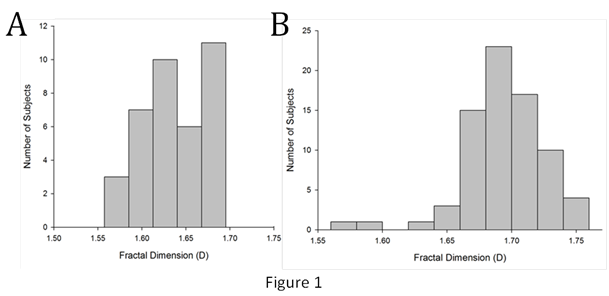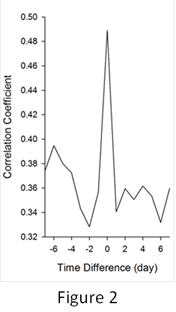Session Information
Session Type: Abstract Submissions (ACR)
Background/Purpose: Although osteoarthritis (OA) is an intensely studied model of chronic pain, little is known about the temporal dynamics of OA pain intensity and how this correlates with physical function and other clinically meaningful outcomes. In this study, we collected pain ratings from individuals with knee OA at a granular level (several times per day) over 3 months to explore the temporal properties of OA pain and examine its association with other patient-reported outcomes.
Methods: Two OA populations were evaluated: one from a placebo arm of a large OA clinical trial and the other from a convenience sample of OA individuals. Participants had to be ≥40 years of age, meet the ACR definition for knee OA, have a minimum pain intensity of ≥4 on Numeric Rating Scale pain (0: no pain, 10: worst possible). All participants were asked to either report their pain on an electronic tablet twice daily (clinical trial) or on their cellphones (3 times per day) over 12-16 weeks and reported sleep performance and activity at 4 weekly clinic visits. To characterize the statistical properties of the time series of pain ratings, the means of the pain ratings in three blocks were calculated and compared by one way analysis of covariance. As well, fractal dimension, D, was calculated using rescaled range analysis to characterize the OA participants’ pain fluctuations.
Results: 78 individuals were studied in the clinical trial and 35 individuals in the cell-phone collection study. Demographics of the two groups were both similar and typical of an OA population (data not shown). The distribution and mean fractal dimension, D, for the two populations were similar (Fig. 1), mean D = 1.69±0.03 for the clinical trial population (A) and mean D = 1.65±0.04 for the convenience sample (B). Data collected by cell phone demonstrated a close correlation between pain intensity and physical activity for the same day (Fig. 2) and a strong correlation between clinic sleep score rating and cell phone reported pain the preceding day (r=0.39, p < 0.001).
Conclusion: This is the first study to characterize the temporal dynamics of OA pain. The finding of an anti-persistent time series in 2 separate populations provides strong confirmatory evidence of this pain pattern. These results are similar to those reported for chronic low back pain and in contrast to purely neuropathic pain and acute pain. The anti-persistent pattern of pain is consistent with the concept of central pain processes activated to modulate peripheral pain input in OA. A strong temporal association between self-reported OA pain and physical function and sleep was also seen.
Disclosure:
T. J. Schnitzer,
None;
R. Yeasted,
None;
L. Huang,
None;
J. Duffecy,
None;
M. Begale,
None;
A. V. Apkarian,
None.
« Back to 2013 ACR/ARHP Annual Meeting
ACR Meeting Abstracts - https://acrabstracts.org/abstract/osteoarthritis-pain-variability-and-clinical-correlations/


